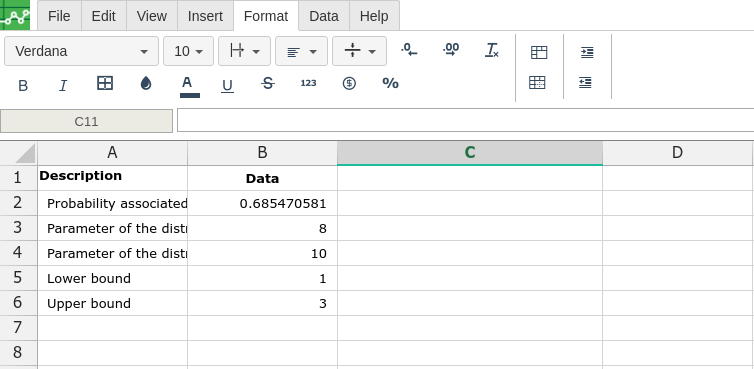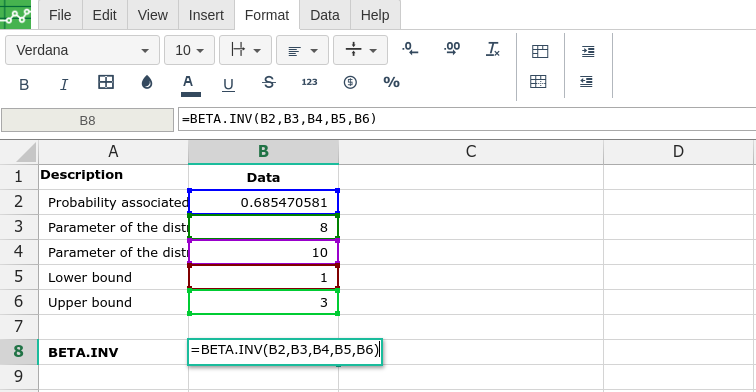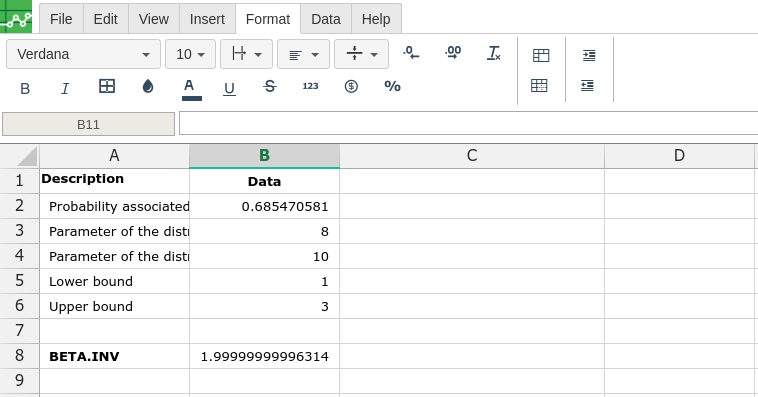BETA.INV
Definition
Returns the inverse of the beta cumulative probability density function (BETA.DIST).
If probability = BETA.DIST(x,...TRUE), then BETA.INV(probability,...) = x. The beta distribution can be used in project planning to model probable completion times given an expected completion time and variability.
Sample Usage
Syntax
BETA.INV(probability,alpha,beta,[A],[B])
The BETA.INV function syntax has the following arguments:
Probability Required. A probability associated with the beta distribution.
Alpha Required. A parameter of the distribution.
Beta Required. A parameter the distribution.
A Optional. A lower bound to the interval of x.
B Optional. An upper bound to the interval of x.
Remarks
If any argument is nonnumeric, BETA.INV returns the #VALUE! error value.
If alpha ≤ 0 or beta ≤ 0, BETA.INV returns the #NUM! error value.
If probability ≤ 0 or probability > 1, BETA.INV returns the #NUM! error value.
If you omit values for A and B, BETA.INV uses the standard cumulative beta distribution, so that A = 0 and B = 1.
Given a value for probability, BETA.INV seeks that value x such that BETA.DIST(x, alpha, beta, TRUE, A, B) = probability. Thus, precision of BETA.INV depends on precision of BETA.DIST.
In order to use the BETA.INV formula, start with your edited Excellentable:

Then type in the BETA.INV formula in the area you would like to display the outcome:

By adding the values you would like to calculate the BITA.INV formula for, Excellentable will generate the outcome:

A
|
B
|
|
|---|---|---|
1
|
||
2
|
||
3
|
||
4
|
||
5
|
||
6
|
||
7
|
||
8
|
